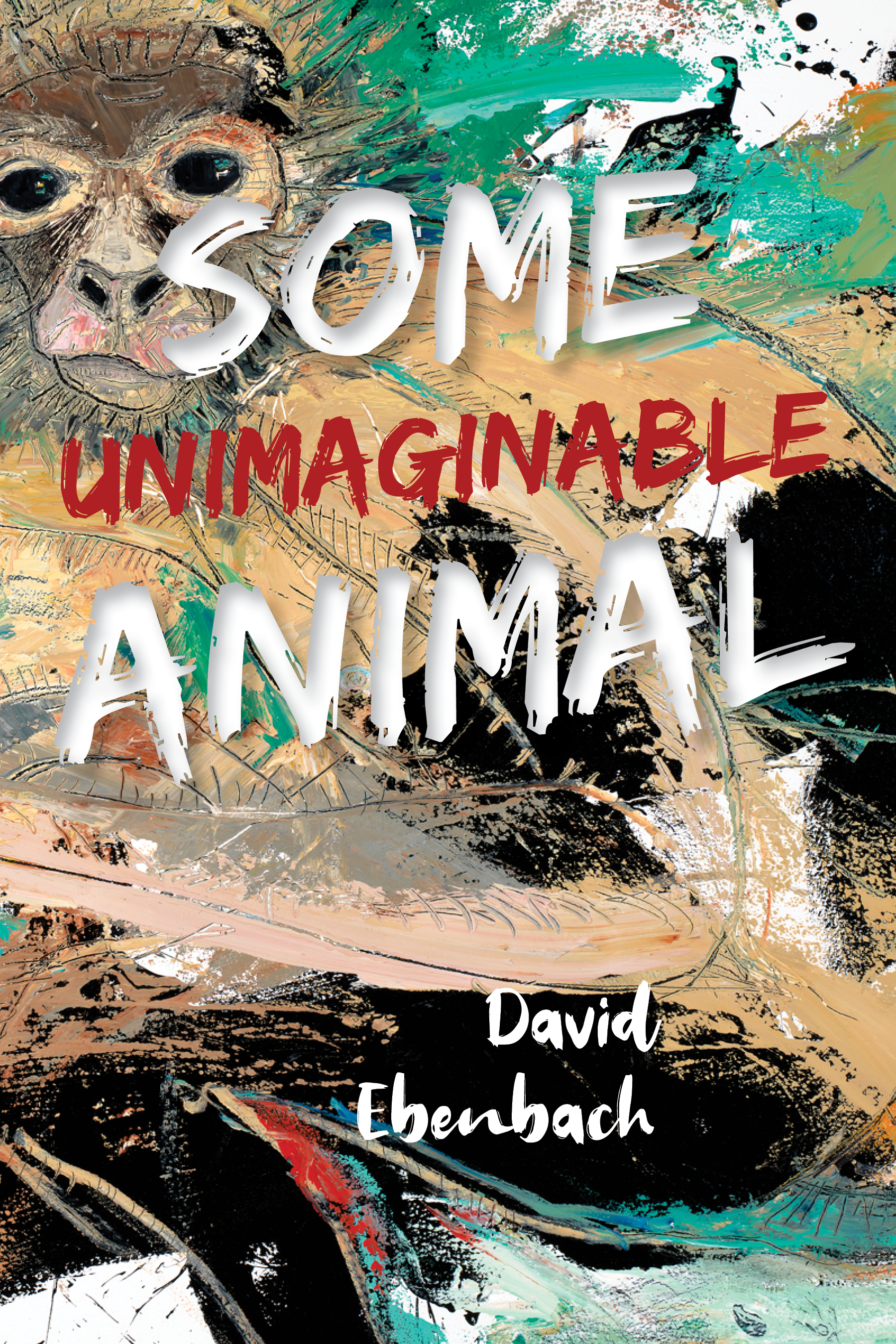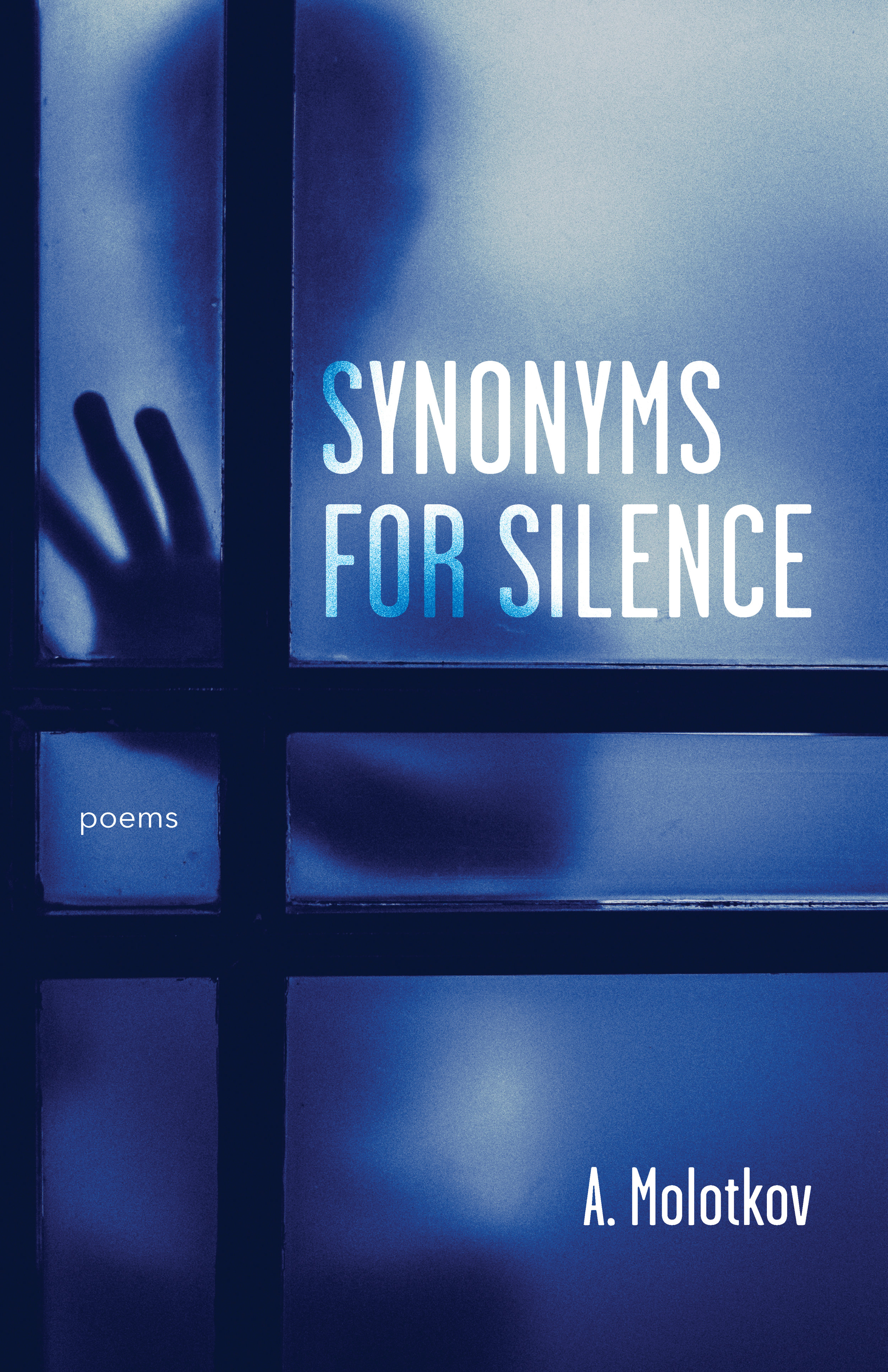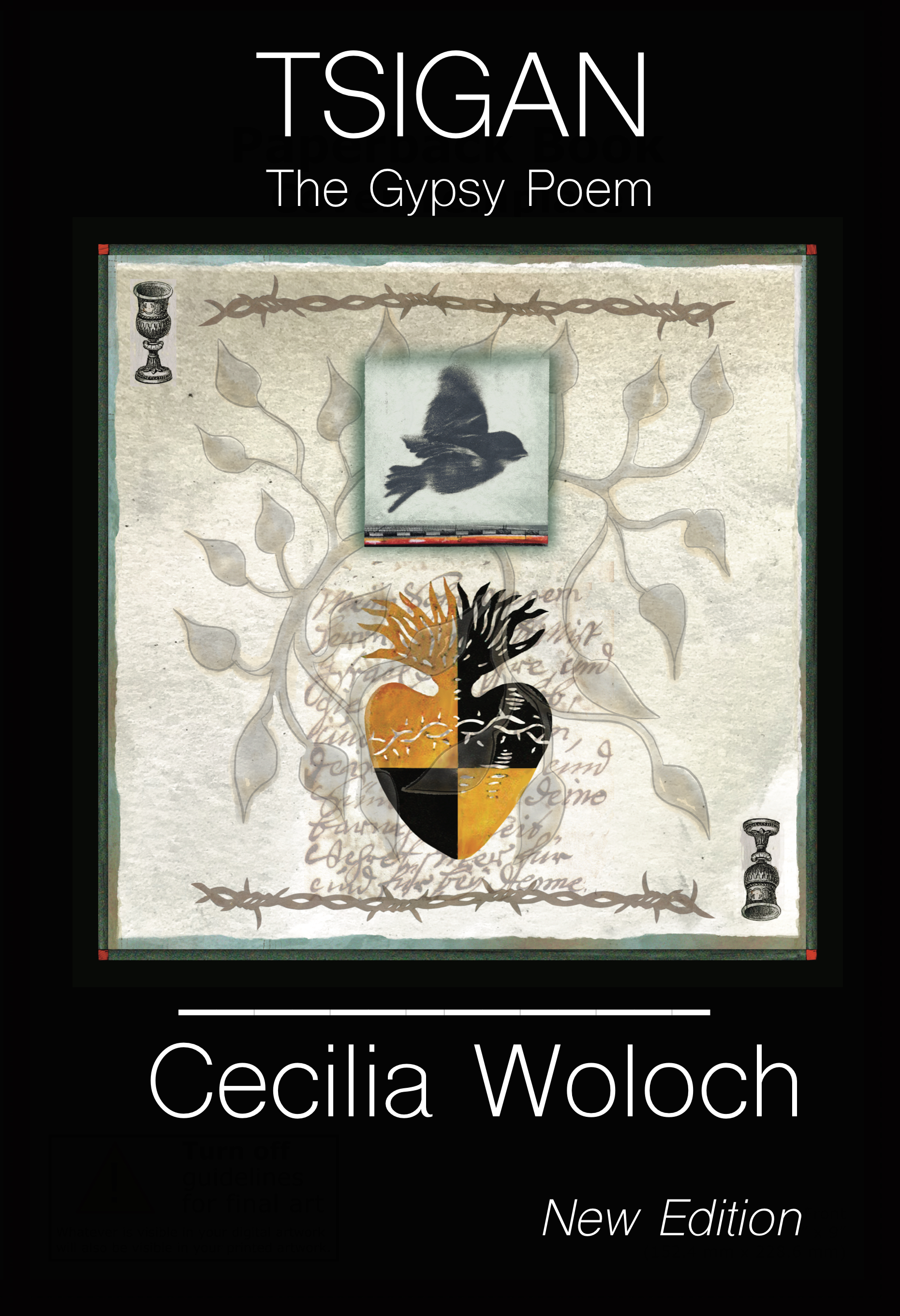Disappearing Acts: Three Takes
Cecilia Woloch, David Ebenbach, Anatoly Molotkov
by Annie Kim
I had just started writing poems in the mornings before leaving for my job as a lawyer, feeling a bit trapped by my dull but comfortable suburban lifestyle, when I came across a CD titled, intriguingly, Diary of One Who Disappeared. Pathos! Though I was hardly the Moravian farmer running off with a gypsy girl depicted in this 22-song cycle by composer Leoš Janáček, the idea of ditching civilization and its rules of conduct thrilled me. Then, as now, disappearance had its seductions.
As it turned out, the farmer-poet whose romantic lyrics Janáček read in the local paper and set to music proved to be a fake. It was, in fact, a well-established writer—Ozef Kalda—who’d penned this sequence. Who disappeared, if at all, only in his head, in the rush of writing.
But disappearance—its seductiveness, its grim promise of resolution by dissolution—winds through the new collections of three otherwise quite different poets: Cecilia Woloch, David Ebenbach, and Anatoly Molotkov. Vanishing mammoths in Ebenbach. The ontology of snow in Molotkov. Exile, personal and political, in Woloch. Disappearance as the darkly present, obsessively imagined, unseen half of being human.
one
Tsigan: The Gypsy Poem (New Edition) (Two Sylvias Press, 2018), by Cecilia Woloch
“My grandmother/who never was/my grandmother,” Woloch observes about her elusive forebearer, a Carpathian who came to America after being sold to a man as a teenaged bride. “Who was called Tsiganka,/Gypsy, as in: she/who vanishes.”
At the center of Woloch’s book-length poem, Tsigan: The Gypsy Poem (New Edition), stands the legacy of this grandmother: a fiery survivor of rocky marriages, children’s deaths, harsh immigrant life in early twentieth-century America. The desire to know not only what happened to her, but why her siblings and children—including the poet’s own father—spoke so furtively about their Gypsy blood, sparks the search that Woloch chronicles in this book.
Early on, Woloch dramatizes the family mysteries she pondered as a child in passages marked by vivid imagery and snatches of dialogue:
I called them teta
(Teta Sue, Aunt
Teta Annie)
for the clicking
of their tongues
against their teeth,
the way they danced
the polka—flying,
spinning, cackling—
how they hissed,
whispered to me
(Eat, honey, eat)—
. . . .
I called them teta
for his sake
and for the secrets
that they kept—
where they’d come from
what was hidden
in their apron pockets, what
could not be claimed—
their laughter rising up
like crows, black-
winged, their hands
waving me back—Don’t
ask, don’t ask— . . .
In slim, quickly paced verse sections like these, interspersed with prose meditations, Woloch the poet takes us on the journey that Woloch the adult granddaughter began in order to understand her Roma heritage and the roots of her own unrootedness. One of the great pleasures of this book is Woloch’s gift for revealing both the physical and metaphysical elements of this journey. So the “sticky cakes” she buys with her American dollars for a ring of Gypsy girls in “brilliant skirts” who press against her, and the wild hope she feels when she meets an ancient woman in Wislock Wielki who remembers her grandmother’s family, her hair “a shock of silver-white beneath/a scarf of emerald green.” On the streets of modern Paris, Woloch’s acute awareness of otherness when a little boy calls her “witch” as she walks by, her “dark hair flying, wild, unkempt.”
Disappearance on a larger, cultural scale also plays a recurring role in this book.
From the start, Woloch expertly weaves back and forth between her personal narrative and a telescoped history of the Roma people who were displaced, exiled, and exterminated over the centuries. Though the book alternates mainly between lyrical, autobiographical verse sections and stark, historical timelines that telegraph information about Romani expulsions and deaths, Woloch also gives us glimpses of her travels through longer prose meditations. Newly arrived in Lodv, for instance, she imagines how town life continued despite the rounding up of Jews and Gypsies during the Holocaust:
We didn’t know where they’d gone, said their neighbors,
waking one too-quiet morning to find their neighbors
gone—the Jews who had run the village shops; the
Gypsies who had made music for generations here. Then
not a note, not a scrap of song. Though of course they
knew. The sky full of smoke. Soon enough, the fields
would be char and ash.
As this passage—and the author’s notes in this expanded, new edition of Tsigan: The Gypsy Poem—reflect, the journey is never done. We return again and again to the sources of unrootedness within us.
two
Some Unimaginable Animal (Orison Books, 2019), by David Ebenbach
“No great accomplishment, disappearing,” quips David Ebenbach, musing about a Neanderthal man whose bones were accidentally preserved at his death only to be, one day, displayed to twenty-first century sightseers. “In the Museum of Natural History,” like many other poems in Some Unimaginable Animal, revels in the physical, albeit temporary, particulars of presence behind which absence dimly beckons.
If Woloch’s poetic persona is a restless wanderer, Ebenbach’s is a raconteur who loves to riff on food and holidays, preferably food with holidays, animals both living and extinct, and those all too intractable but disappearing animals, humans. Behind all the delectable specimens that pile up in the poems—“big bowls of pasta,” “mini-pies and cider doughnuts,” “sticky buns”—we get an occasional glimpse of the spiritual cravings that drive this consumption:
Eventually it’s nine-
thirty, and the bread has cooled and the soup is
perfectly milled and the sauces have all thickened,
and it’s time. That’s when a sadness comes over
the kitchen, which you almost don’t catch, you’re
so hungry: the cooks are done. They’re done
and the cooking was the pleasure part, so now
their pleasure is just some food. Now it’s just
the tedious rotating of jaws, the steady dis-
assembly of what matters . . .
(“From Scratch”)
That disappearing act we stage each time we eat a meal is one rhythm in the book.
Another is an almost little-kid wonder at the origins of the universe. How big was the “first insect[’]s” jaw? Did the “first mammal” have only enough time “to make two babies/before something ate it, or a wave/swept it away”? Standing, again, before bones in a museum in “Whale, Extinct,” Ebenbach ponders the cycles of death and life:
And what after that?
The sea recedes again, inevitably, the drying sand strewn
with new bone—and all of us, or what remains, left to
some unimaginable animal and its tools of excavation.
In quiet moments like this one, Ebenbach puts us in touch with the Big Questions without fanfare or elegy. Or here, in the tender poem, “Driftwood,” where a father explains to his young son:
this was once a branch,
somehow it got into the sea,
he doesn’t know how—oh,
the things fathers should
know—but the water skinned
the wood, opened seams in it,
left it here for the sun
to whiten through its daily examinations.
The father holds the awkward
fragment. He doesn’t get into
how we started out like this. . .
Ebenbach is in his element when he gives full force to his narrative imagination. Nowhere is this more the case than in the delightfully strange and meticulously crafted prose poem, “After the Battle.” In it, a mysterious group of people labor to untie a mountainous knot, only to discover that there were “countless thousands of knots at the heart of this one mountainous knot.” In a closing scene that feels particularly resonant in our current political moment, Ebenbach offers this grim but clear-eyed vision:
Their enemies, too,
found themselves caught between a desire for vengeance and a
desire to disentangle. Because war never fails utterly, blood was shed.
It soaked into the ropes and, as it dried, tightened them, first around
hands, then around arms and bodies. By this time, all were quite
unable to move. Nonetheless, the fighting found a way to continue,
and the knot continued to tighten.
three
Synonyms for Silence (Acre Books, 2019), by Anatoly Molotkov
How can a poet use silences to say “something small, smaller/than one can hear”?
Anatoly Molotkov’s Synonyms for Silence seems to answer: By imagining very hard being something else, a thing whose nature is to disappear. “I’m a mandala built/to be/erased,/a snowflake, a former crystal,” begins the slender poem, “Opened.” “I envy air,” asserts “Obituary.” “I respect concrete,” echoes “To the Firm World.”
Indeed, Molotkov divides his book into three sections named after elements—“Carbon,” “Iron,” “Oxygen”—which also happen to be chapter names in Primo Levi’s collection of short stories, The Periodic Table. Mirrors within a mirror. Despite these literary signposts, though, it’s no easy task to figure out how Molotkov’s divisions (or their epigraphs from Levi) illuminate the poems they contain. But their conceptual difficulties—like others in the book—seem intentional. Why should meaning, itself, avoid the slippery embrace of disappearance?
Erosion, corrosion: these are the actions of Molotkov’s melting snowflakes, of rust on metal, coolly and elegantly described in poem after poem. In “A Love Letter to Chemistry,” for instance—one of the book’s many affirmations of the innocent, fierce and, ultimately, amoral, elements in nature—Molotkov opens:
I believe in rust, its malignant vitality, its firm
love for every surface that will love it back. I admire
the way snowflakes
remember last melting. Trees care little for warmth if
it’s not a fire. I wish I could be that confident. I wish
I grew on a hill. I would
give anything to be pure water or
pure ash . . .
As one statement unfolds sinuously into the next, we take pleasure from the music, from being able to almost make out their arguments. Molotkov explained the reasoning behind such a poetics in a 2016 interview with the Cincinnati Review:
A poem should not be completely understood by either the reader or the writer—instead, it should open an interpretive space in which multiple possibilities coexist. “Obituary” begins a series of poems that attempt to project a distinct, confident voice via the use of statements that do not easily lend themselves to causative relationships yet accrue as symptoms of the speaker’s views and, more generally, of the human condition.
Causation as mirage, words as symptoms. And when the symptoms are as lovely as they generally are throughout this book, should we care about the course of their disease?
Certainly, Molotkov’s poetic personas seem at home with extinction. “We wait in line to become obsolete,/to trade places with shadows,” starts the last poem in the book, “Love Letter to Everyone.” There, as in “Unhistory,” Molotkov’s speaker displays his characteristic acceptance: “Where does blame belong, where/does guilt lead us? When salt enters, the ocean accepts our final promise.” What remains is “[m]y body extinguished, its dark skin.
Disappearance has its seductions.
But what are we to make when we come across a poem like “Confronting the Body,” in which Molotkov writes in the first-person about a detained “unlawful combatant’s” experience of torture? One of several poems in the section called “Iron,” it describes with more realism than the others real violence against a particular person that can’t be considered just allegorical or metaphorical. Though it, too, resolves into acceptance:
In this torture tool,
Palestinian Chair,
my hands chained
to an iron
ring in the floor,
my leg
muscles ache then hurt then
break.
Yes, it’s true: some futures are
shorter than the rest.
Some
silences last longer than others.
Maybe it’s asking too much of a book called Synonyms for Silence to want a carefully expounded ethical stance on violence. It wouldn’t shock me if the poet behind Janáček’s Diary of One Who Disappeared, for that matter, was at least as much in love with the idea of disappearance as he was with any living girl. Poetry thrives in the seam about to come undone. As in the desire Molotkov voices in the last lines of “Obituary,” in the section called “Oxygen”:
In the end,
I will be smoke over your city. I envy
the spaces between things.
Cecilia Woloch’s honors include fellowships from the Fulbright Foundation, the National Endowment for the Arts, CEC/ArtsLink International and the Center for International Theatre Development; her work has also received a Pushcart Prize and been included in the Best American Poetry Series. She has published six collections of poems and a novel, as well as essays and reviews. Tsigan: The Gypsy Poem, her second collection, originally appeared in 2002 from Cahuenga Press, was published in French translation as Tzigane, le poème, Gitan, by Scribe-l'Harmattan in 2014, and was issued in an expanded and updated English edition by Two Sylvias Press in 2018. The final poem in the new edition is featured in a commemorative exhibit by Daniel Libeskind at Auschwitz-Birkenau. The text of Tsigan has also been the basis for multi-lingual, multi-media performances across the U.S. and Europe. Born in Pennsylvania, raised in rural Kentucky, and currently based in Los Angeles, Cecilia has traveled the world as a teacher and writer.
In addition to his new poetry collection Some Unimaginable Animal, David Ebenbach is the author of six other books of poetry, fiction, and non-fiction, winners of such awards as the Juniper Prize and the Drue Heinz Literature Prize, among others. He lives with his family in Washington, DC, where he teaches creative writing and literature at Georgetown University. You can find out more at davidebenbach.com.
Born in Russia, A. Molotkov moved to the US in 1990 and switched to writing in English in 1993. His previous poetry collections are The Catalog of Broken Things and Application of Shadows. Molotkov has received various fiction and poetry awards and an Oregon Literary Fellowship. He co-edits The Inflectionist Review. Please visit him at AMolotkov.com.



